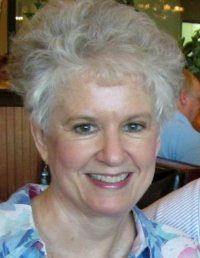Gale Williams Bamman, Certified Genealogist Emeritus
-
Created on 28 October 2015
In May 2015 Gale Williams Bamman of Cross Plains, Tennessee, was granted BCG’s honorary designation Certified Genealogist Emeritus, in recognition of more than forty years of noteworthy involvement with BCG. First certified in 1972 as Genealogical Record Searcher (GRS), Gale earned three additional BCG credentials: Certified American Lineage Specialist in 1977, Certified Genealogist in 1982, and Certified Genealogical Lecturer in 1995. She served as BCG trustee and president. At the time of receiving Certified Genealogist Emeritus, she was the longest actively-credentialed associate.
Gale Williams Bamman, Certified Genealogist Emeritus
When Gale began taking clients for research, she was hesitant to call herself a professional genealogist. “I didn’t consider that a title I could just assume. I felt I needed approval from some authority, and the fairly newly-organized Board for Certification of Genealogists (1964) seemed the perfect avenue for that,” she said. “The instructions I received in 1972 were daunting, because of my general lack of education in the field and my being somewhat self-taught. . . . There was no BCG application guide, no seminars or local speakers, and no national conferences. How-to guides were some years down the pike, other than Gilbert Doane’s Searching for Your Ancestors, first published in 1960, and which I’d consumed.”
Her application for GRS was approved. Receiving word of her success, Gale said, “was one of my happiest moments; and it proved to be a momentous move upward in my career. . . . I could then say I was a professional, but I’d add—as I continue to do today—that I still had much to learn. I should here state what is obvious: that no one today could pass BCG’s certification requirements based on the limited knowledge I had in 1972; and with the myriad forms of instruction and study available now, it would be counter-productive, anyway, to limit oneself to basically one’s own experiences in genealogical research.”
Gale has seen the field grow and change over the years. She is excited about FamilySearch’s initiative to digitize and index their holdings, and is gratified to see the increasing recognition of genealogy’s importance to fields such as history, medicine, and genetics. On the other hand, she is concerned about some of the information found online—trees without proper documentation or proofs, and the transitory nature of some websites and records.
Like the field in general, BCG continues to evolve. “Over the forty-plus years that I have held BCG credentials,” Gale remarked, “BCG’s influence has grown significantly, and the certification process has received extensive deliberation and refining. More-specific requirements and stronger qualifications are increasingly required. None of the eight application and renewal portfolios I submitted were easy to prepare. Each required careful consideration as to which of my client reports or journal articles would best reflect my knowledge and abilities as a researcher. I mailed each and every one with sweaty palms and fluttering heartbeat.”
Associates facing their first renewal often question how best to prepare. Gale advises, “It’s very important that you address all points discussed by your judges as ones needing improvement or correction, and demonstrate in your submissions as to how you’ve improved. During the five years prior to your renewal, continue your studies and attendance at seminars and conferences, or avail yourself of tapes from those. Consider attending a genealogical institute. Conferences and seminars are ideal for networking and for learning about myriad topics; but there’s much to be absorbed, to the point that sometimes attendees can return home with a certain amount of information-overload. Institutes offer structured classes that can help you retain what you learn.”
Gale suggests that those contemplating an initial application for certification “have sufficient research background and education so that you understand the application’s requirements. If you don’t grasp what is required of you, it will be quite difficult to present submissions that will meet with the judges’ approval.” She suggests genealogists hold off filing preliminary applications until they feel they are ready “or are very close.” Gale continues, “Sample, but actual, BCG portfolios are available at national conferences, where you can study approved submissions. You can have an edge up if you avail yourselves of those. And, by all means, study Genealogy Standards, by the Board for Certification of Genealogists (2014); Evidence Explained: Citing History Sources from Artifacts to Cyberspace (Third Edition, 2015), by Elizabeth Shown Mills; and Mastering Genealogical Proof (2013), by Tom Jones—to name the top guide books—until the principles in those become second-nature to you.”
Now retired from professional research, Gale has taken on a project as a fundraiser for the Middle Tennessee Genealogical Society: an in-depth book on the history of Nashville, Tennessee’s earliest charitable organizations. “I’ve always enjoyed learning more about social and historical aspects— something clients expected me to know about each of their locations. I couldn’t spend their time learning that, but had to apply myself to learning, when and as I could,” she revealed. Gale’s desire to keep learning—after spending more than four decades gaining knowledge and improving her skills—is only one of the things that set her apart.
On behalf of BCG and the genealogical community, thank you, Gale, for sharing your time, your energy, your expertise, and your viewpoints to help the rest of us grow.
CG, Certified Genealogist, CGL, and Certified Genealogical Lecturer are service marks of the Board for Certification of Genealogists, used under license by Board-certified genealogists after periodic competency evaluation. Certified Genealogist Emeritus is also a service mark of BCG, offered to Board-certified genealogists who have had long and distinguished careers with BCG and who are retired from research for clients and from the profession of genealogy for more than incidental monetary gain. The board name is registered in the US Patent & Trademark Office.
